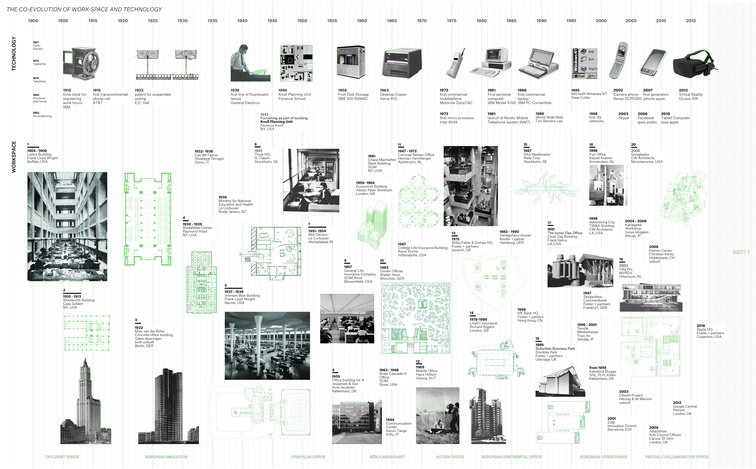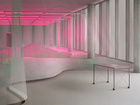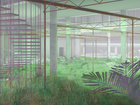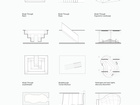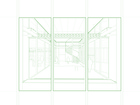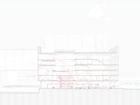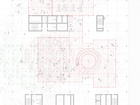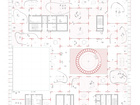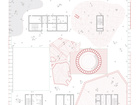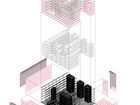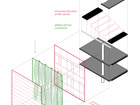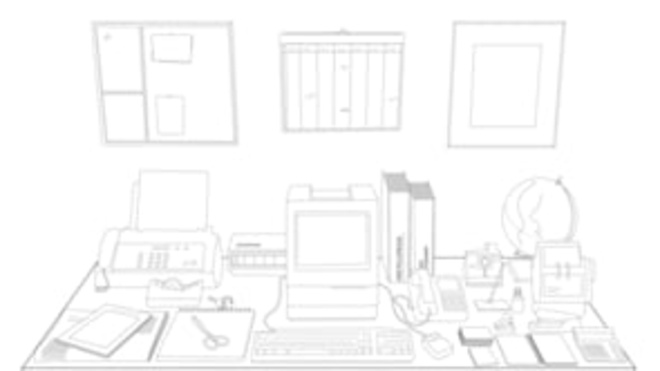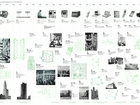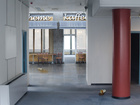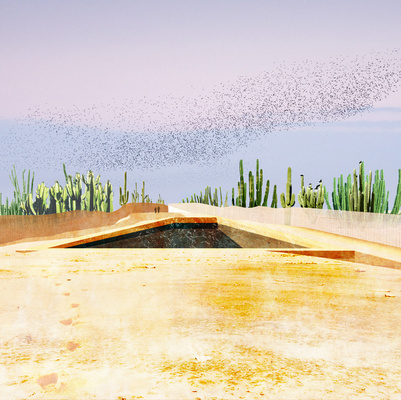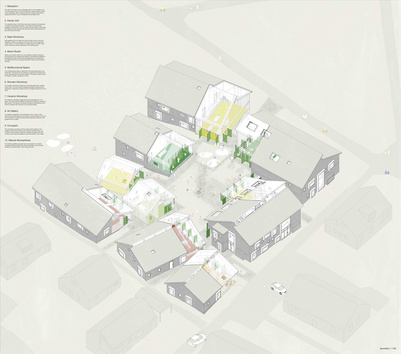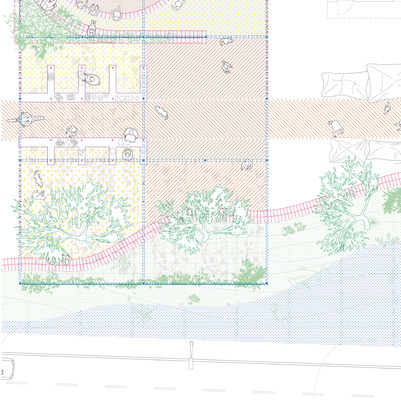Workspheres of the new economy

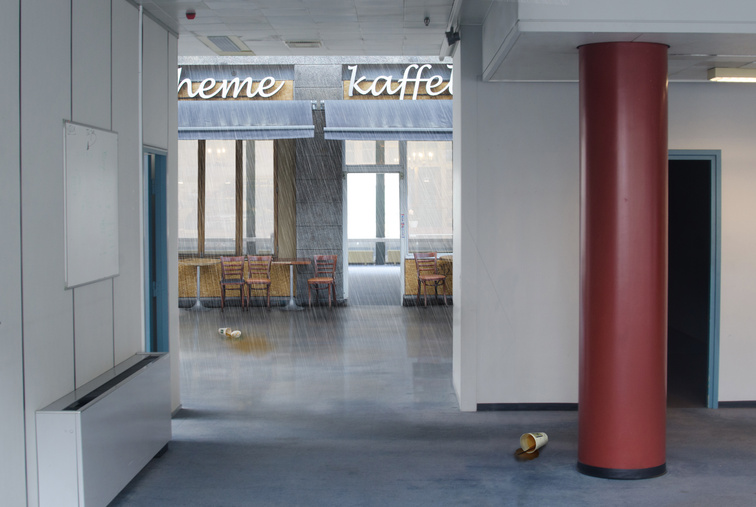
Invisioning A Domain For The Contemporary Worker
In times where the influence of information technology is radically transforming what it means to work, it yet again becomes inevitable to speculate on urban responses to a new social practice of work.
In what some describe as the New Economy, the radical shift of production from the physical to the digital sphere is proliferating precarious forms of employment, while spatially and temporally blurring the lines between work and leisure.
To counteract the individualization of the contemporary worker, the spatial redefinition of the workspace as a domain of solidarity becomes inevitable for Copenhagen’s social coherency. Opposing the municipalities entrepreneurial endeavours of developing exclusive districts for innovation, the project proposes transformation as a tool for the typological evolution of the workspace.
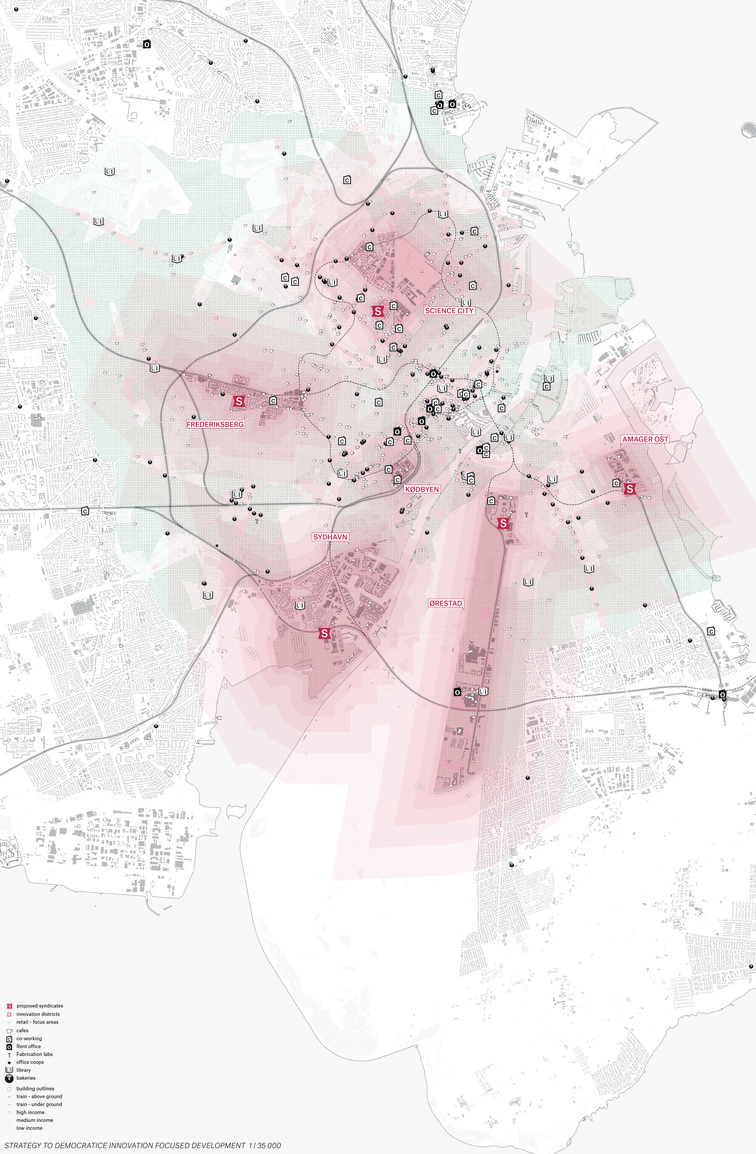
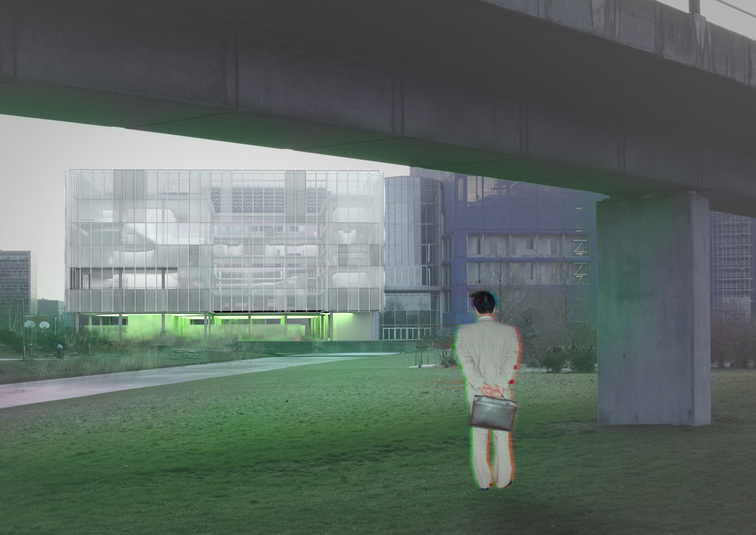
If digital technology manifests a virtual infrastructure for today’s mode of work, it liberates us to overcome the office as a space shaped hierarchies, but imagining it as a tactile landscape of aesthetics and effects, that heightens awareness of our direct surroundings, promotes the physical interaction between workers and brings luxury to the hybrid nature of today’s culture of work.
In the non-typical plan, spatial interventions condition the generic plan into distinct zones, that allow for the nomadic worker to choose the suiting environment for his current task . The building is curated in 3 major programatically defined Zones: As an antitode to the spaces of work, the ground-floor is infiltrated by the surrounding nature, while a spiralling core of lockers becomes the hedonistic gate into the world of work. As only true deep floor-plan , the second floor becomes a more enclosed, diffusely-lit area for digital work in various group-constellations. The 4 upper floors are currated by overlapping zones of distinct atmospheres. Some irritating or comforting, others condensing social activity or denying it.
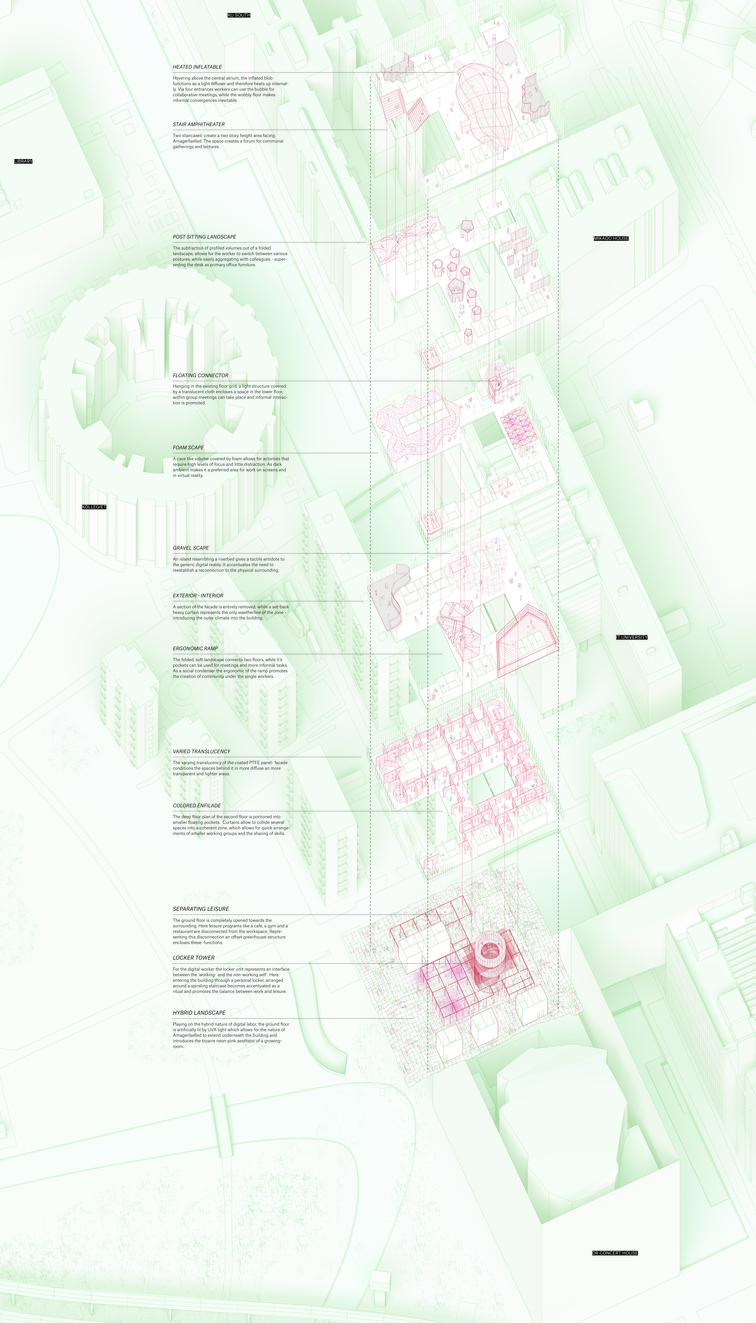
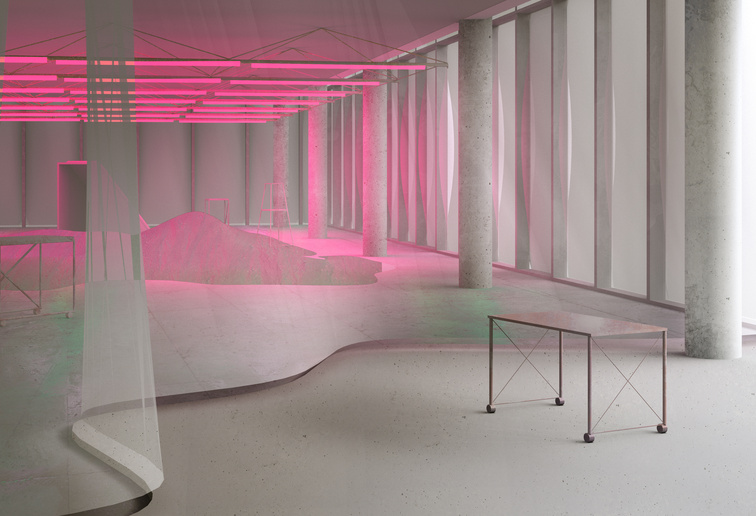
Much like the worker who enters a bubble of wifi to continue working outside the office; nature invades the ground-floor and becomes a digitally enhanced hybrid. Like in a glasshouse the production of chlorophyll is not temporally bound to day and night, but becomes the basic condition.
Entering the sphere of work becomes ritual of meandering through the spiralling tensile structure, up to a circular arrayed ring of lockers, an interface between working and non working self, a switch between two worlds, that might enable to retain a better balance between production and recreation.
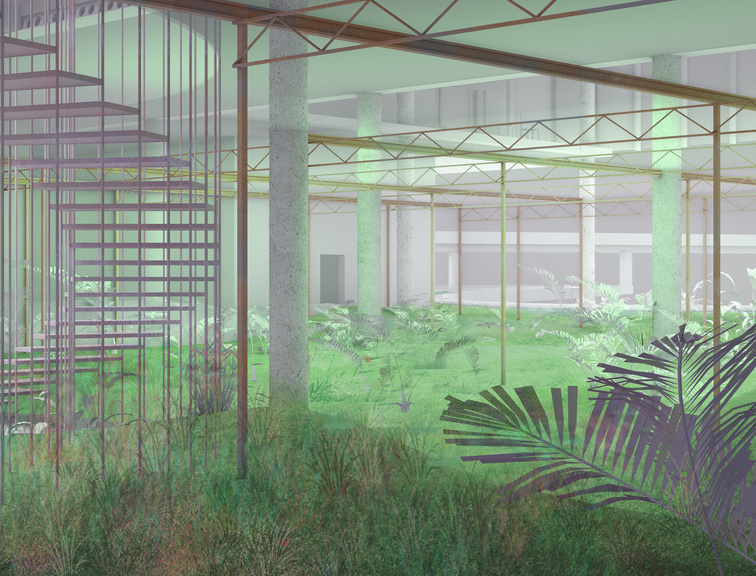
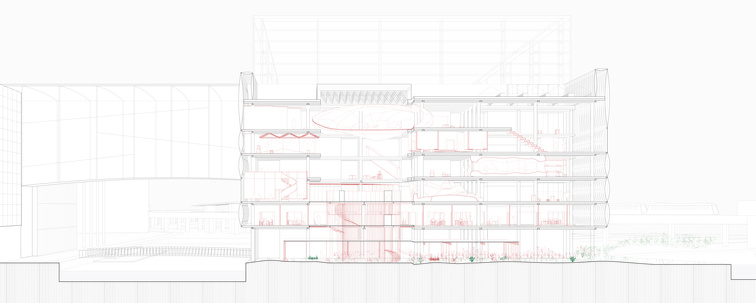
Program
